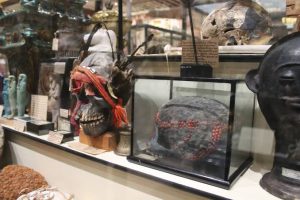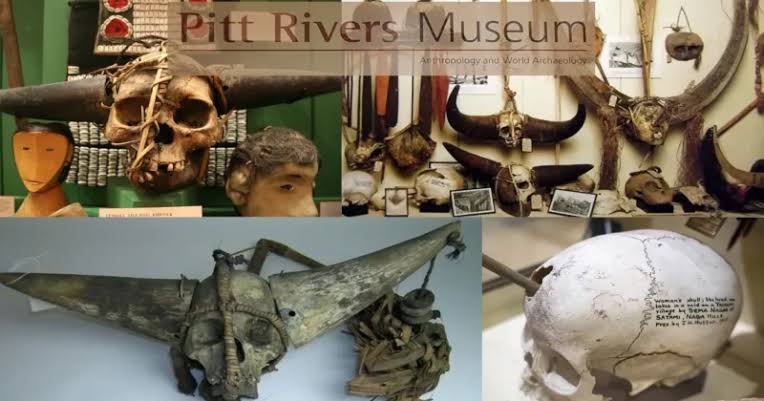In a powerful act of remembrance and resistance, a delegation from India’s remote Nagaland state visited Britain’s Pitt Rivers Museum to reclaim ancestral remains taken during colonial rule.
According reports, the remains include 41 human skulls and over 170 objects possibly containing human hair—many believed to have been looted from burial sites or collected during violent encounters.
The Oxford-based museum, part of the University of Oxford, holds the world’s largest collection of Naga artefacts.
During the British colonial era, skulls and body parts from regions like Asia and Africa were often seized and shipped back to Europe—viewed then as “trophies” for scientific curiosity, racial profiling, or display.
Today, those objects are a painful reminder of exploitation.
“For the first time, there is a Naga delegation here to reclaim our history, culture, and ancestors,” said Dolly Kikon, a U.S.-based anthropologist and a member of the Lotha-Naga tribe.

Kikon, 49, travelled from California to Oxford for the historic visit, which included tribal elders and cultural leaders.
The remains of her ancestors, once publicly exhibited, were quietly removed in 2020 following growing global criticism.
Museum director Laura Van Broekhoven acknowledged the complexity of repatriation, citing bureaucratic hurdles but affirmed that negotiations are ongoing.
“There is no fixed timeline yet,” she said, adding that discussions with other indigenous groups are also underway.
The Naga delegation has joined voices with British MPs and activists, calling for UK legislation to support the return of ancestral remains and sacred artefacts.
Unlike the UK, countries like the Netherlands have already enacted national policies to repatriate looted human remains.
Globally, calls for reparations are intensifying—from African nations seeking stolen artifacts to U.S. descendants of enslaved peoples seeking justice.
Just last month, Germany returned 19 skulls of African Americans sent decades ago for phrenology—a now-debunked racist pseudoscience.
Critics of reparations argue present-day governments shouldn’t pay for historic injustices. But campaigners like Kikon disagree.
“Indigenous people must be allowed to tell our own stories,” she said. “Reclaiming our ancestors is one way to do that.”
The Pitt Rivers visit marks a turning point in the fight for colonial justice, as tribes long silenced by history reclaim their identity—one skull at a time.



